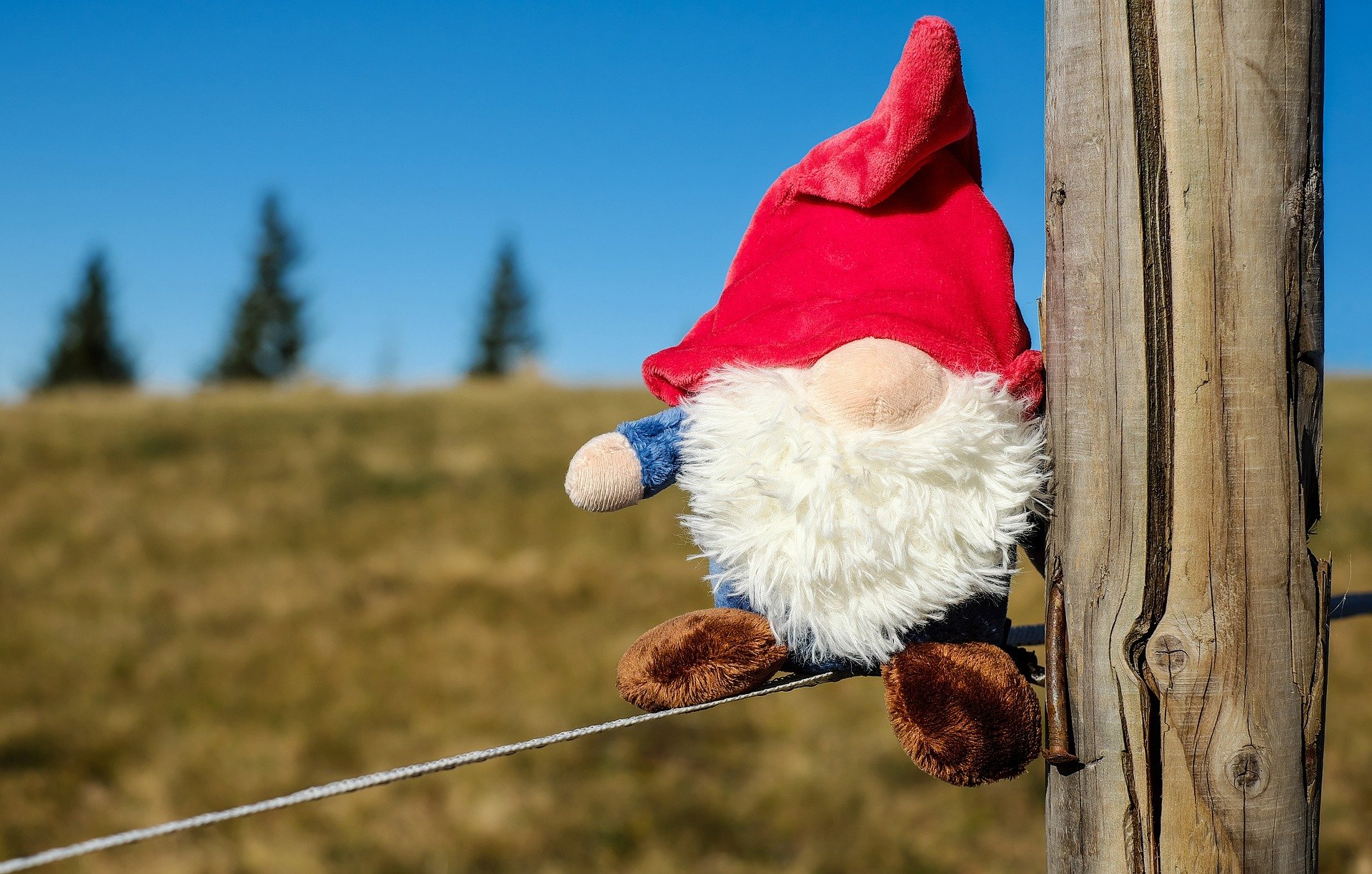
Last week, I wrote about the smoldering, smoking, mountain-shaking, fiery glory of God and I found a pretty powerful picture to go with it.
This week, I cannot get the phrase, “to the praise of His Glory” out of my head. And, inexplicably, you get the cutesy picture of a gnome doll on a fence. I know, it’s kind of a startling contrast, but bear with me for a little while and you’ll see why.
The apostle Paul uses the phrase “to the praise of His glory” three times in the first chapter of Ephesians. The first time, it’s in verse six. (This is verses 3-6, so you have the context.)
“Praise be to the God and Father of our Lord Jesus Christ, who has blessed us in the heavenly realms with every spiritual blessing in Christ. For he chose us in him before the creation of the world to be holy and blameless in his sight. In love he predestined us for adoption to sonship through Jesus Christ, in accordance with his pleasure and will— to the praise of his glorious grace, which he has freely given us in the One he loves.” (NIV)
He then uses it twice in verses 11-14:
“In him we were also chosen, having been predestined according to the plan of him who works out everything in conformity with the purpose of his will, in order that we, who were the first to put our hope in Christ, might be for the praise of his glory. And you also were included in Christ when you heard the message of truth, the gospel of your salvation. When you believed, you were marked in him with a seal, the promised Holy Spirit, who is a deposit guaranteeing our inheritance until the redemption of those who are God’s possession—to the praise of his glory.”
These are some glorious passages indeed. We are predestined, before the creation of the world to be holy and blameless in his sight! Paul uses the word “predestined” once again in the very next sentence in speaking about our adoption into God’s family and that it gave God pleasure to adopt us into His family freely made possible by Jesus.
Again, Paul mentions this predestination concept in verse 11 and adds that this was part of God’s plan and purpose from before He created the world. We are included in Christ and His glory when we heard the Gospel and believed and the Holy Spirit, His own Holy Spirit that was hovering over the formless, shapeless world at creation, now lives in us as a seal, an irrevocable guarantee of our inheritance of eternal life in heaven as His beloved children —all to the praise of His immeasurable, inconceivable, almighty, thundering, fiery, universe-forming, amazing glory.
Wow.
That is some powerful, powerful stuff.
And, as if that wasn’t enough, off in a little corner of the internet I found a website called Light of the World Ministry that had a blog under the heading “Aramiac Insight” where the writer was delving into this phrase. The website says, “We provide information regarding customs, figures of speech, and the Aramaic text of the New Testament, in order that the Bible may be understood more clearly. I cannot even find an author’s name on this piece, but he says at the time Paul wrote this, in the context of the Greek culture where this took place:
“When a man who owned slaves died and in his will, gave the slaves their freedom, they would put on a cap of liberty to show that they were now free. At the funeral and afterward, they would parade in the town and streets telling all that their master was so great – he had set them free. That custom is described as being “to the praise of his glory”. In other words, they were showing the greatness and splendor of the master because he had set them free.”
That cap of freedom known as the Phrygian shows up in history as far back as 800 BC and resurfaces again and again right up to the time of the American Revolution. One of the original designs for the dome on the U.S. Capitol had Lady Liberty wearing a Phrygian cap. It’s almost always red, soft, and similar to a stocking cap, but with a soft peak flopped over, usually toward the front. It’s vaguely similar to what we would think of as a gnome’s hat. (Thus explaining the picture above.)
But the point is, we were captives, slaves to sin who have been set free by the blood of Christ. We absolutely should be parading through the town square wearing bold, funny hats that mark us as people of great joy. We should be shouting the glorious praise of our glorious God who set us free to the praise of His marvelous, ever-lasting glory!
The difference between us and slaves set free by a master who died is that our master, our Savior, is not dead because He rose from the grave alive!
HALLELUJAH!
Today’s Praise
John 15:15
I no longer call you slaves, because a master doesn’t confide in his slaves. Now you are my friends, since I have told you everything the Father told me. (NLT)
